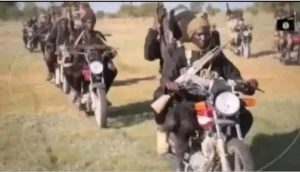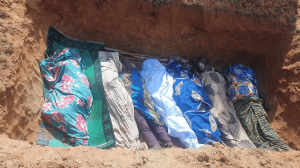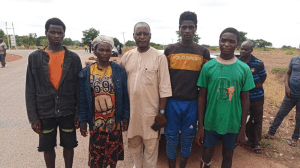By Sam Jones
The gruesome April 28 bombing in Borno State — where 26 civilians, including women and children, were blown apart by an IED near Furunduma — is not an isolated act of terrorism. It is not merely the work of “extremists” hijacking a peaceful religion. It is, rather, the latest chapter in a long, bloody story that stretches back to Islam’s founding.
We need to say it plainly: Islam, by its own foundational texts and history, is not a religion of peace. The violence in Nigeria is not a distortion of Islam; it is an expression of Islam’s core principles when taken seriously.
Both Boko Haram and ISWAP — the two rival jihadist groups tearing apart Nigeria’s northeast — claim to act in the name of Allah. Their bombs are not random acts of brutality; they are calculated acts of religious war. Their goal is not merely to disrupt markets or terrify civilians — their goal is to establish sharia, to expand the House of Islam, and to annihilate or subjugate anything and anyone standing in the way.
Western leaders and media outlets, eager to avoid offending, often label these groups “extremists” or “radicals,” as if they are outliers misrepresenting Islam’s true spirit. But Islam’s own sources tell a different story. Consider Surah 9 (At-Tawbah), one of the final and most authoritative chapters of the Qur’an:
“Fight those who do not believe in Allah or the Last Day and who do not consider unlawful what Allah and His Messenger have made unlawful and who do not adopt the religion of truth from those who were given the Scripture — [fight] until they give the jizyah willingly while they are humbled.” (Surah 9:29)
“Indeed, Allah has purchased from the believers their lives and their properties [in exchange] for that they will have Paradise. They fight in the cause of Allah, so they kill and are killed.” (Surah 9:111)
“O you who have believed, fight those adjacent to you of the disbelievers and let them find in you harshness.” (Surah 9:123)
These are not fringe interpretations. They are explicit commands, understood for centuries as justification for violent jihad. Boko Haram and ISWAP are not twisting Islam; they are living out its militant commands.
What, then, is the foundational principle? That no solution to Nigeria’s crisis can succeed if it ignores the religious root. This is not primarily a poverty issue, an education gap, or even a governance problem — though all those factors worsen the crisis. At its heart, Nigeria faces a religious war driven by Islam’s theological mandate to conquer and subdue.
The West’s typical responses — development aid, diplomatic pressure, interfaith dialogue — all fail because they sidestep the root issue. You cannot defeat jihadist Islam with economics, nor can you soften its blade with “tolerance” campaigns. Islam’s theology of conquest cannot be negotiated away. It cannot be reformed by outsiders. It can only be met by a stronger, truer authority — the authority of the gospel of the kingdom of Jesus Christ, who alone has the power to break the chains of false religion and bring true peace.
Christians, particularly in the West, must wake up to this reality. Too often, we shrink back from speaking hard truths about Islam for fear of being labeled intolerant. But truth is not bigotry. To love our Muslim neighbors is to tell the truth about the system that enslaves them — a system built on violence, not grace; on conquest, not reconciliation.
Nigeria’s Christians understand this in a way Western Christians often do not. They know, through burned churches and buried family members, that this is not just a political conflict but a spiritual war. Their survival depends not merely on military victories but on the advance of a gospel that can disarm the heart.
The road from Kala-Balge to Gamboru Ngala is now a corridor of blood and fear. But behind the bombings and bullets lies a deeper contest — not just for Nigeria’s land, but for Nigeria’s soul.
The real question is whether we will name the enemy for what it is — and whether we will lift high the only name that can overcome it: Jesus Christ, the King of Kings, whose kingdom alone can bring peace to a world at war.







